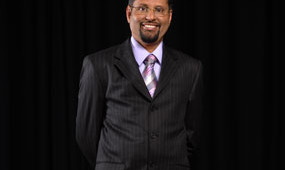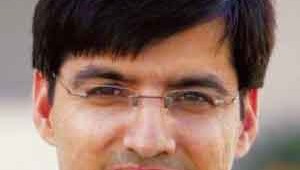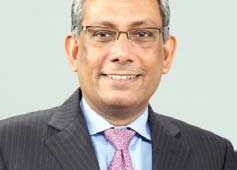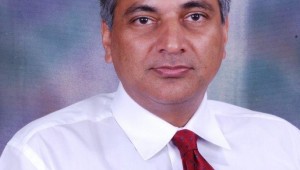
Aravind Sitaraman is a rare man – A computer scientist with 57 patents at Cisco and a 2012 Karnataka Rajyotsava Award winner for social service. Son of a freedom fighter, he has a strong urge and drive to transform India. He believed he could do that by joining politics. He even quit his top job at Cisco to take up social work full-time between 2004 and 2007; a period he recalls as his best phase of life.
It was a proverbial return of the prodigal son when Aravind heeded Cisco’s big boss John Chambers call to come back and do what he wanted to. It was a perfect deal. As president of inclusive growth, Aravind drives the CSR activities of the company.
Aravind feels he has cracked the ‘happiness formula’ for executives after nearly three decades of intense corporate and social life aided by ancient wisdom. He has written a yet-to-bereleased booklet for executives who have questions about balancing various demands.
Benedict Paramanand caught up with Aravind to know how he lives two lives and much more…
How do you balance your aggressive social life with aggressive professional life?
Well, if your social life becomes a professional life, you don’t need to balance it. What you have to do in life is to do what you want to do, then, you don’t have to balance. Most of the times, people are caught in situations where what they are doing and what they have to do in life, is not what they want to do. So what I always tell people is, you need to figure out a very fast way to get to the fourth quadrant – which is what you have to do is what you want to do. You can get there in two ways – you can grow in your present career or have an attitude change to get to do what you want. Most people give up their best things first. Let’s say, for example, certain family rituals that they you like doing, something that makes you internally peaceful, that’s the first thing that people will drop. They won’t stop movies, cricket or pub hopping and they will always say they don’t have time. So, for me, attitude change is most important because most people cannot manage both their careers and their personal need for a fulfilling life. But if you change your attitude about what you are doing, you will easily find your way there and will love what you are doing. It’s all about choice.
You relocated to India in 2000 after a very successful career in Cisco in the US. What has been your experience so far?
I wanted to come back and join politics. I wanted to change (the country). Coming from a freedom fighter family, you want to do something. The year 2000 was my second home coming. In 1985 I came back after studies and I wanted to join politics but was talked out of it. In 2000, when I came in, Cisco said if you are going back to India why don’t you help set up this site. So, I said 2 years and it ended up being 4 years, and at the end of 4 years I said, I have to see what I want to do. I quit and talked to many people. I realized I will make a terrible politician; I was way too transparent, too ethical and uncompromising.
So I put all my energies into social work which is what I really wanted to do – change through social work. It’s probably the three years – from 2004 to 2007 – are the most productive years of my life. I am very proud of what I have done. Those three years were very fulfilling because I worked enormously long hours.
As I was working, doing all the social work, developing website, guess what I was worried about every day? My SEO rankings! I asked ‘what am I doing? I am searching for achievement again? That’s when it dawned on me that you don’t have to leave a role and go somewhere else to find fulfillment and achievement. You can be where you are to find a happy balance and that was a big learning.
Strangely enough, I didn’t realize it then but our philosophy teaches that – you don’t have to go anywhere (to find fulfillment). Having seen a lot of rural India I was very convinced that for this country to go forward, it has to leapfrog and technology is the way to change it. Strangely enough at that time I got a call from Cisco.
When I met John Chambers, Cisco CEO, four years ago, he said you probably can do more for society in Cisco rather than from outside. In many ways he is right because I started the ‘Feed a Child program’ in Cisco, we feed 38,000 children every day. We started ‘Adopt a School program’, eight schools benefit from it. We did Samudhaya, a huge community of people. I agree that if I had not been in Cisco then my range of influence would have been smaller.
Is that a message for many aspiring change agents – you don’t have to get out of the system to make a difference….
That’s what got me to write a book about it because so many people are coming and asking me, usually in their 40s, usually men – what do I do? Where is my career going? What is my life about? The focus of the book is – how do you graduate your life, how do you move up the scale without losing your core essence. You don’t need to become a sanyasi to do that. The book is based on my personal experience. I’m sure many can get some insights from it.











Recent Comments